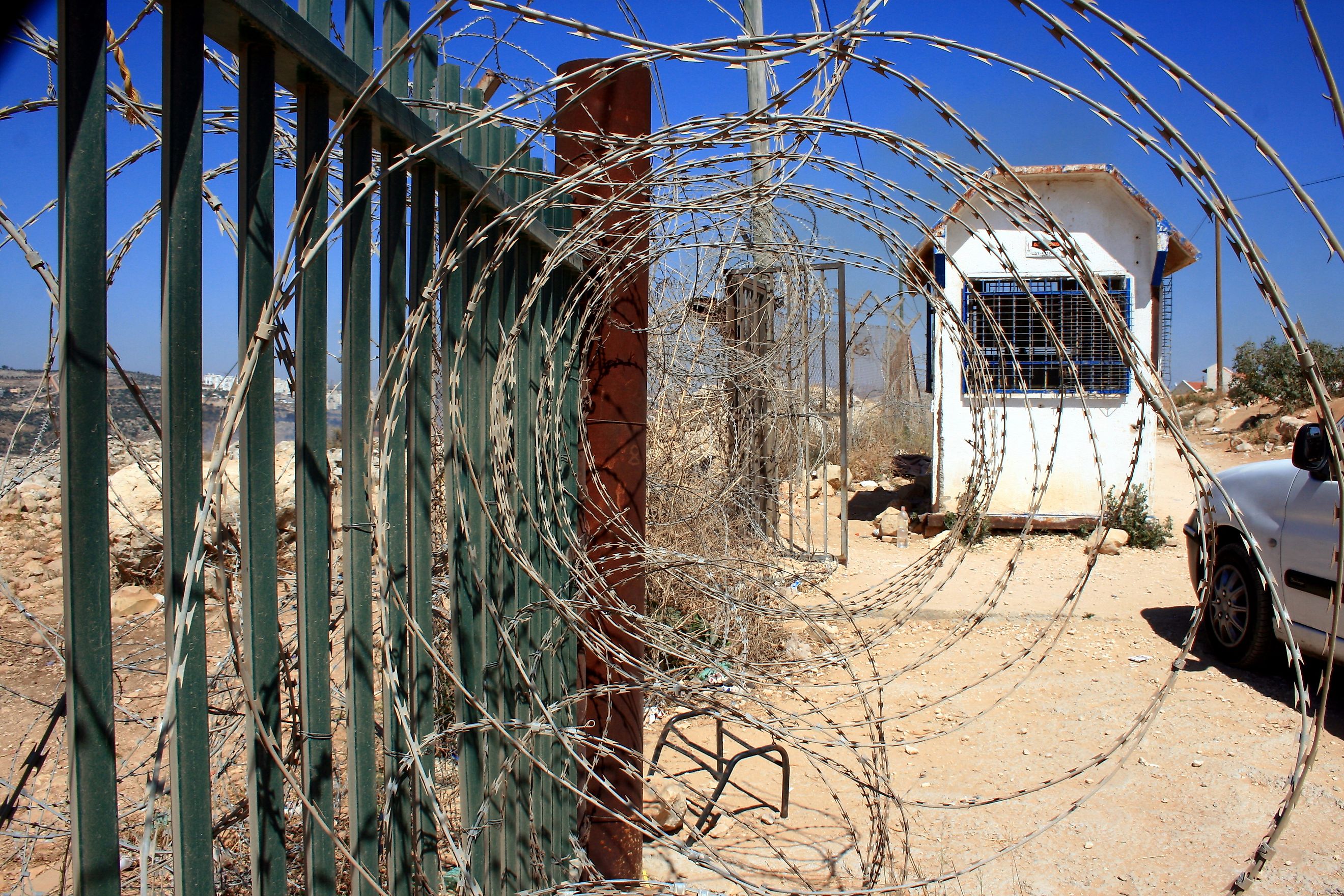
7 of the World's Most Disputed Borders
Many political scientists argue that a strong, stable, and clearly defined border is a key criterion of statehood. As usual, however, reality is not always so clear-cut. At times, a dispute over land can lead to outright conflict. More often, tensions simmer under the surface. This article highlights seven of the world's most disputed borders.
Kashmir is disputed by India and Pakistan. Israel and Palestine have been in conflict since the mid-20th century. Aksai Chin and Arunachal Pradesh have been a point of disagreement between India and China. The Korean Peninsula remains divided, as the war between North and South has never come to a resolution. Ukraine and Russia have clashed over Crimea and Donbas. Relations between Ethiopia and Eritrea have normalized, but some issues remain. The South China Sea is a complex dispute involving several nations.
Kashmir
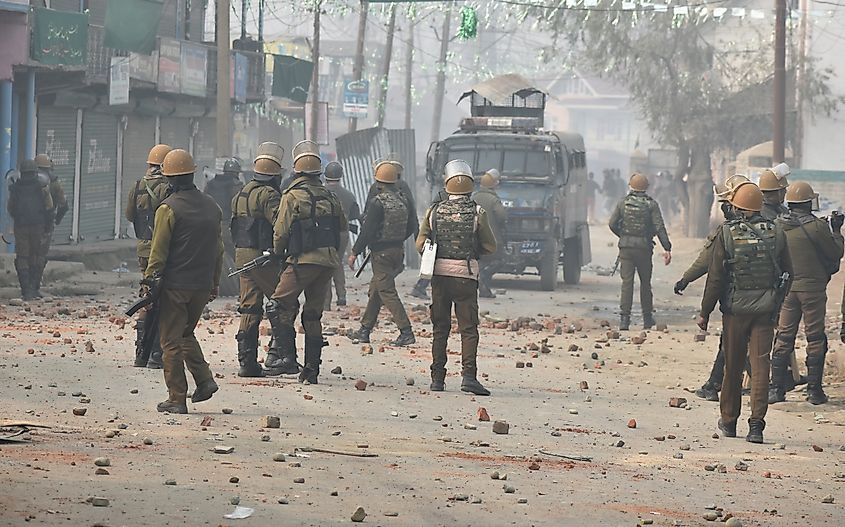
After the Second World War, the British Empire, which had been overextended, began to falter. After a few hundred years of colonial rule, British India was partitioned into two nations, India and Pakistan. The nearly 450-mile border between the nations has experienced a longstanding flashpoint over Kashmir and Jammu since 1947. Both nations lay claim to the entire Kashmir region but only control parts of it. This dispute escalated to wars in 1947, 1965, and 1999. Efforts have been made by the UN to resolve the dispute, including several bilateral talks and mediation efforts. The most noteworthy was the 1972 Simla Agreement, yet peace has failed to take hold.
There have been armed insurgencies over the last four decades, and both sides have been accused of human rights violations.
Israel and Palestine
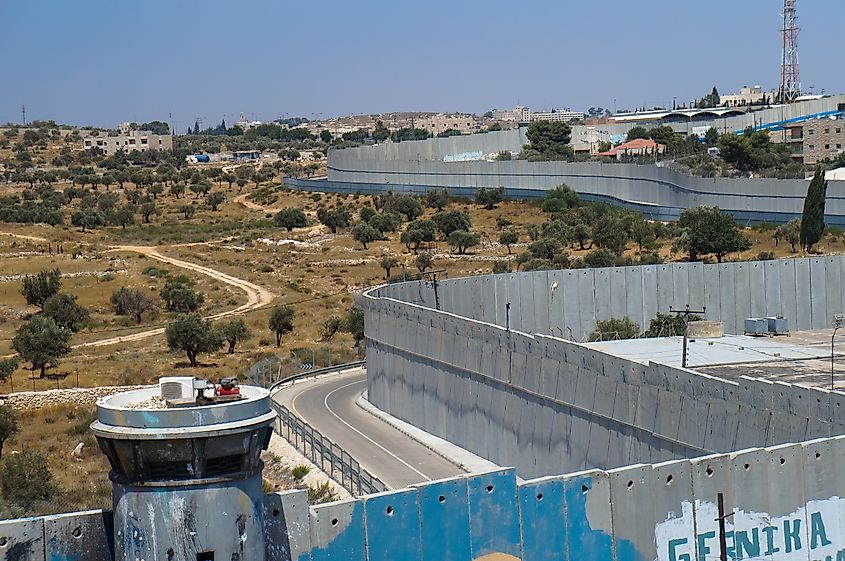
Jews, Arabs, and other groups have for centuries called the region of Palestine home. Throughout history, Palestine has seen many invading and occupying armies. By the end of World War I, Palestine was an outpost of the Ottoman Empire and was handed over to British control. As Jewish pogroms rose in Eastern Europe and Nazi culture started taking hold in Germany, many European Jews began immigrating to what was then British Palestine. At first, the Jews and Arabs worked side by side as neighbors, but tensions began building.
In 1947, the UN recommended that British Palestine be divided into two states, one Arab and the other Jewish, with Jerusalem as an international city. When Britain withdrew from the region in 1948, and Israel declared its independence, the upstart nation was attacked by neighboring newly-formed Arab nations, and wars have continued breaking out since. International efforts have been made to resolve the dispute, including the notable Oslo Peace Accords, yet peace has so far eluded each side.
Aksai Chin and Arunachal Pradesh
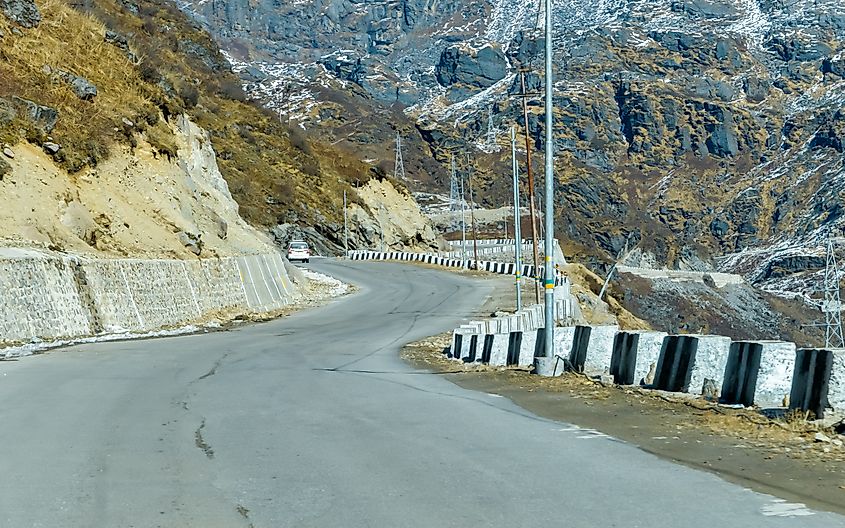
The border between China and India has been a point of contention in their history for over eight decades. China controls the region of Aksai Chin, but India claims it as its own. India also manages the region of Arunachal Pradesh but China claims it. This disagreement sparked the 1962 Sino-Indian War. While this dispute has been less publicized than other border disputes, it is becoming a greater publicized issue as India and China are rising world powers. There have been several efforts to make peace, most notably in 1993 and 1996. However, the border remains a point of tension.
The McMahon Line was established between Tibet and British India. India holds to this boundary, which would place Arunachal Pradesh within its territory. China, however, does not recognize the McMahon Line and views Arunachal Pradesh as "Southern Tibet." During the 1962 conflict, China temporarily occupied parts of the region but withdrew while still maintaining its claim.
Korean Peninsula
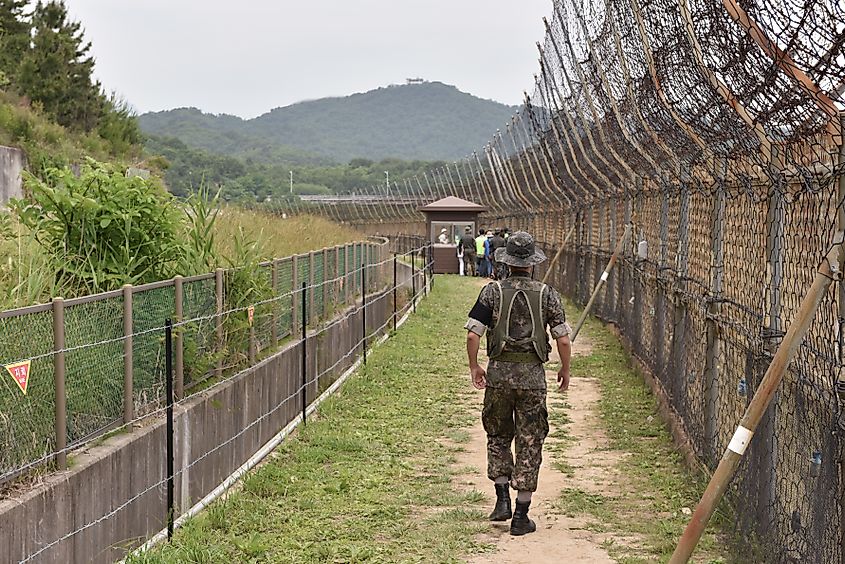
After the Second World War, the former Soviet Union controlled the northern half of the Korean Peninsula, and U.S. forces controlled the south. The plan was for the nation to be reunified, but the Soviets established a communist government in their zone, while the USA supported the establishment of the Republic of Korea in the South. Cold War tensions led to what has become known as the Korean War, and the country has remained divided with a Demilitarized Zone (DMZ) as the fortified border between the countries ever since, with no official end to the war.
Multiple diplomatic efforts have been made to resolve the dispute, including the Six-Party Talks (China, Japan, North Korea, South Korea, Russia, and the USA) and, later, the inter-Korean summits. However, these talks have failed to make any significant headway.
Crimea and Donbas
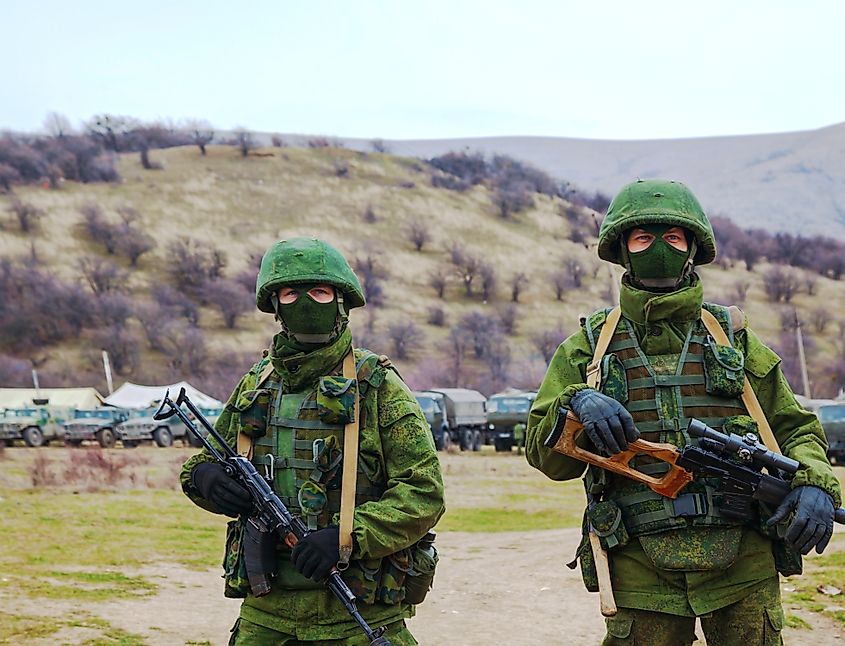
There have long been tensions between Ukraine and Russia since the end of the Cold War and the breakup of the Soviet Union. The Donbas region and Crimea, in particular, have been flashpoints. In 2014, Russia annexed Crimea. After moves by Ukraine indicating its willingness to join The North Atlantic Treaty Organization (NATO), Russia invaded in 2022. Russia was hit with international sanctions, and diplomatic efforts have been made to resolve the matter, but the fighting continues.
Currently, Russia is demanding that its annexation of Crimea and four other regions (known as oblasts) be recognized by Ukraine in order for the fighting to end. Ukraine has so far refused any such concessions.
Ethiopia and Eritrea
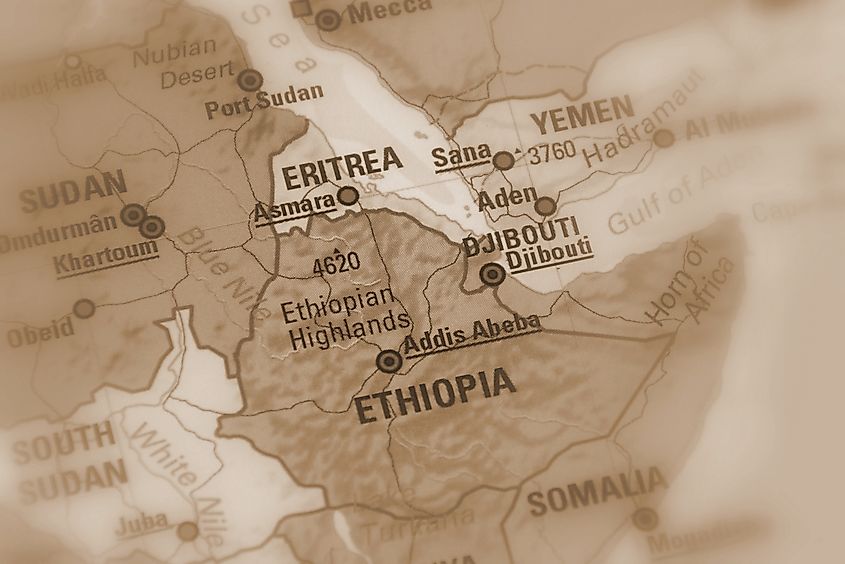
Eritrea was formerly a colony of Italy from the late 19th century until the Second World War. After the war Eritrea was placed under British control. In 1952, Eritrea was federated with Ethiopia but retained some degree of autonomy. Ethiopian Emperor Halie Selassie dissolved the federation and Eritrea was annexed to Ethiopia, which has led to the conflict and resistance. The Eritrean War of Independence lasted a few decades with Eritrean rebels fighting against Ethiopian rule. This led to a victory for the Eritrean People's Liberation Front in the early '90s.
Between 1998 and 2000, there was a ruthless war over border disputes between Ethiopia and Eritrea, and in spite of the Algiers Agreement in 2000, tensions remain over border demarcation. In 2018 there was a peace agreement signed by the parties, which served to improve relations and normalize border crossing. However, some issues remain unresolved, including the exact demarcation of the border in Badme. Both sides keep a military presence on the border.
South China Sea
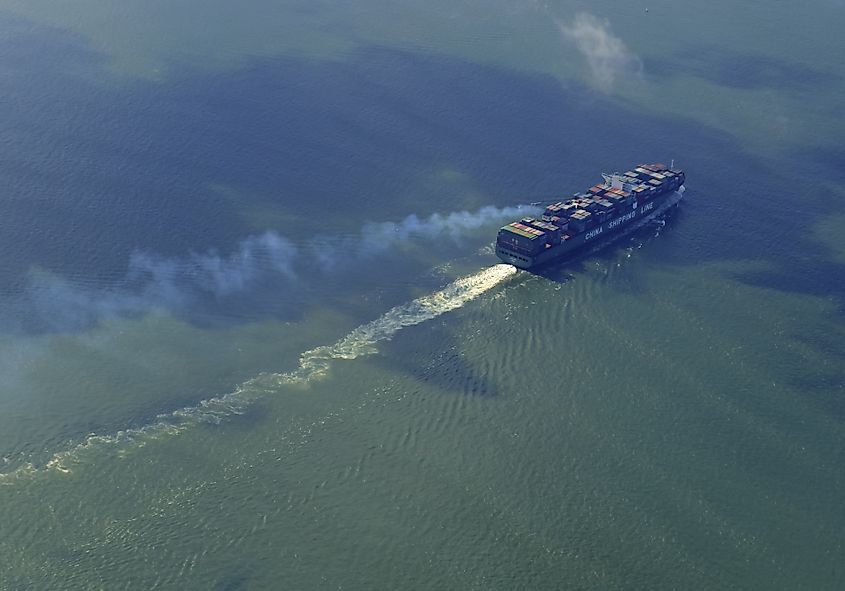
This border dispute involves several countries (China, Vietnam, Philippines, Malaysia, Brunei and Taiwan). The dispute arose over the resource-rich waters and the strategic value of the territory. There have been various efforts to resolve the dispute, including a legal ruling from the Hague in 2016, yet enforcement has proved a challenge.
In 2013, the Philippines brought a case against China to the Permanent Court of Arbitration (PCA) in The Hague under the UN Convention on the Law of the Sea (UNCLOS). The tribunal ruled that China had no legal basis for the territory in question under international law. The tribunal stated that any historical claims China might have possessed were dissolved when it ratified UNCLOS. Despite this legal victory, China rejected the tribunal's ruling and questioned the authority of the PCA in the matter. Since the PCA has no enforcement power, it has proved to be little more than a win on paper.
Clear borders are essential to a nation's statehood. When disputes arise, they can often create jurisdictional confusion and lead to far-reaching security, stability, economic, and even citizenship issues. Sometimes, border disputes can seem intractable, but hope remains for diplomatic solutions.











